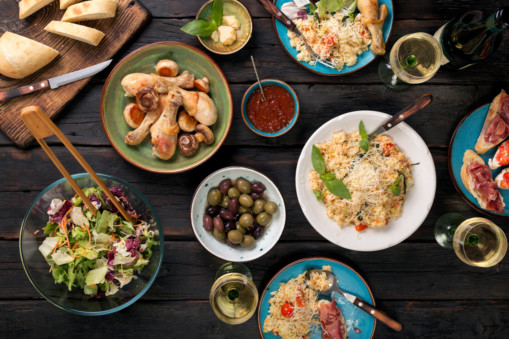
With the massive following for all those MasterChef shows on television, I cringe a bit as I admit that cooking doesn’t interest me in the least.
Food, of course, does. But while gorging on a wonderful meal — and most meals are wonderful because I eat when I’m hungry and we all know that hunger is the best sauce — I am not the slightest bit curious about what ingredients have been used so that I can try out some of it at home.
Sadly for my family, I have been the only cook in our home, preparing all manner of main courses, side-dishes, desserts and confectionery — but the preferences and tastes or the cravings of the eaters at the table have not been as important to me as the time required to churn out the stuff. If it requires too much frying and marinating and watchful cooking, it’s not going to come out from my kitchen!
So much personal antipathy to the process of cooking, however, does not make me scoff at those who take time and effort to do everything just right. Rather, I think it remarkable — and I am also grateful that they do, because then I can indulge when I’m with them, can’t I?
And over the years (in all that time I have saved by using short cuts in my kitchen), I have noticed that the attitude of people to food often reflects their attitude to life as well.
There are a few generous souls who always manage to find some dish on the menu to appreciate and there are others who like to go with the flow and echo what the majority say in praise of the meal. There’s a hint of people-pleaser in them and they don’t want to hurt the feelings of the cook.
Uneaten food
There are also empty flatterers who wax eloquent about anything and everything — and are obviously insincere since most of the food on their plate is uneaten.
There are the curious and creative who taste something and want to know the name of it, the ingredients, the method of preparation — and if they meet with resistance to their questions, they try to figure it out themselves. “There’s a hint of basil,” they muse, “and perhaps some Cilantro as well.”
Then there are those who like to make their presence felt and explain to you, the cook, and to everyone else, what tricks they use to make sure that a particular dish never fails when it comes from their kitchen — making you wonder whether you have messed up again or whether you have their stamp of approval ... and you turn with relief to the silent, hands-off types who sample everything without comment — and let everyone else do the same.
There are some who are slightly finicky — and critical — and look around to see what the others are enjoying and then try it for themselves to judge; and then there are the over-critical, who don’t hand out compliments or praise easily — but it is easy for them to point out the flaws: “This could do with a little more chili — or salt — or a dusting of icing sugar, and it would be better if it was served piping hot/ice cold/lukewarm ...” Is anything ever good enough in life for this connoisseur?
And what about the blase, the ones who believe they know it all, have seen it all and done it all — and obviously think the efforts of the chef today are not worthy of mention?
But wait a minute. Why am I critical of others when out of sheer laziness I would rather not tax my taste buds or brain cells and just accept it all happily — because everything is good when one doesn’t have to do it oneself?
Cheryl Rao is a journalist based in India.










